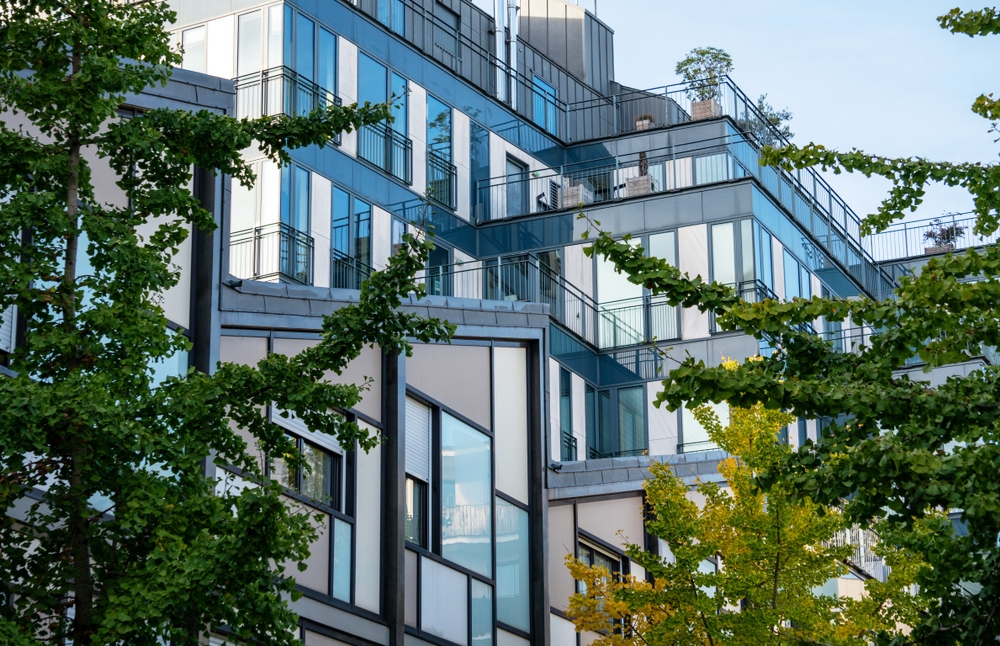Whilst dealing with the day to day responsibilities of running a business, it’s now also become paramount for commercial property owners to better utilize their buildings, too. This means paying attention to your business’s effect on the environment and taking the appropriate measures to ensure that your business is working towards a more sustainable future.

Shutterstock Licensed Photo – By Gideon Ikigai
The following methods can really help in making your business property more economically efficient.
Have a Building Inspection Performed
If you’re serious about optimizing your building to be more energy-efficient, it’s a good idea to seek professional advice from expert inspectors who use business and home inspection tools. An inspection means that an individual can analyze your property from top to bottom and is, therefore, able to pinpoint ways in which your building can be improved, especially in the category of where you may be wasting energy or losing heat. This means you’re able to receive a full analysis and make all the necessary changes, however big or small they may be.
Consider Remote Working
For some businesses, this may not be a viable long-term option, but even if it’s just one day a week, this can make a significant difference. Cutting down on the amount of time employees spend commuting to and from the office means that, not only do you avoid creating more pollution, but you’re also saving money on the energy spent serving the workers all day, whether it’s boiling the kettle, powering up the computers and turning on lights.
With so many businesses and workers embracing more remote working these days, it’s a very popular choice and can still be managed effectively using supportive technology, which can ensure that any remote worker still has access to everything they need. This could include smart devices to have team phone calls and a working database that workers can use anytime from anywhere.
Employ Energy-Efficient Appliances and Lighting
If your business property sees many electrical items being used extensively on a daily basis, then it’s crucial that you switch to energy-saving options to preserve the environment (and your bills). This doesn’t just extend to energy-efficient bulbs and lights – it also means replacing any electronic equipment with more efficient models, including any electrical goods used in a communal space like a kitchen, such as a microwave or a kettle.
Also Read
Another option is to try and encourage more natural light in your main working space to limit the need for artificial lights. If you have the means and the budget to replace your windows – or even install some, if you don’t already have any – then this will be a beneficial investment, through which you’ll make your money back by avoiding the costs of powering up desk lamps and main lights.
Recycle Everything You Can
Recycling isn’t just about paper, plastic and cardboard waste anymore. Recycling means doing everything you can, with any item applicable. For example, electrical items such as old computer monitors and printers can all be recycled. These electrical items should be recycled instead of thrown in the garbage, especially in large commercial buildings that operate a high level of technology and machinery. Some electrical goods have information supplied with them in regards to any recycling service which may be offered. Many electronics suppliers provide a service in which they can collect your old items free of charge and take them away for you. This means that a lot of the time, you won’t even have to make any extra effort to recycle your goods appropriately.
Preserve Your Water
This requires communication, especially if you have a large team of staff in a large building. Team members as a whole need to be educated on the importance of preserving water to help the environment. Employees may notice a leaky tap but fail to report it, or perhaps leave a tap running behind them when they leave the bathroom. By educating your team members to work together to preserve water, this can be a huge benefit for the environment – and your water costs. It could simply be a case of mentioning it in the next team meeting or making a note of it in a staff handbook.
You could also encourage all team members only to boil the amount of water needed when making a hot drink rather than a kettle full, which will go to waste.
In Conclusion
Eco-friendly efforts begin with the smallest changes by any individual who operates within your commercial building, whether this is a visitor, an employee, a manager, or a cleaner. As long as time is taken to be aware of what everyone can do to truly make a difference, then there’s no reason why your business property can’t be more economically efficient.
